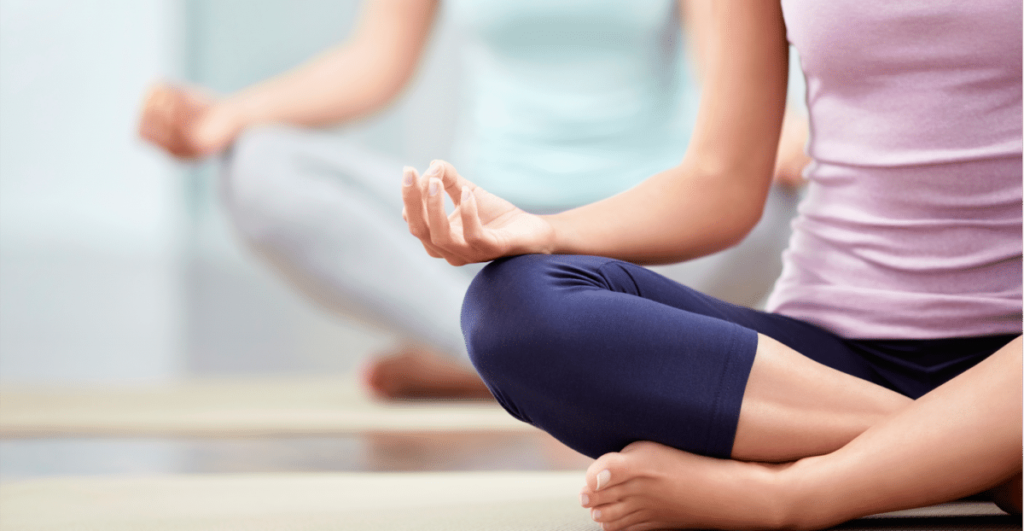
The Latest Wellness News and Research
Yoga and Body Image
New research shows that practicing yoga may lead to a more positive body image among women. Flinders University researchers in Adelaide, Australia, compared survey results between 193 yoga practitioners and 127 nonyoga university students on measures of positive body image, embodiment and self-objectification, among other topics. Yoga practitioners scored higher on positive body image and embodiment, and lower on self-objectification, than nonyoga participants, as reported in Body Image (2016; doi: 10.1016/j.bodyim.2016.06.008). Yoga participants included those who practiced Iyengar and Bikram styles. Study authors noted that while Bikram practitioners reported appearance-related reasons for taking yoga more than Iyengar students, no significant differences existed between these practitioners on body image variables.
Study limitations included the fact that nonyoga subjects were younger (aged 17–57, with a mean age of 21) than the yoga enthusiasts (aged 22–75, with a mean age of 51). No differences in body mass index existed among group participants, however. The topic warrants further research.
Lunchtime Nature Walks and Sleep
To get a good night’s sleep, you may want to add more “green exercise,” or exercise in nature, to your routine. Preliminary research, reported in the International Journal of Environmental Research and Public Health (2016; 13 [3], 280), shows that green exercise may enhance sleep quality, providing additional health benefits to the already acknowledged mental rewards of exercise, such as better mood and higher self-esteem. “Forest bathing”—an activity popularized in Japan&mdsah;embraces this concept and emphasizes opening all senses to bathe the body and mind in a forest’s essence, while walking slowly with attention.
University of Essex researchers in England conducted the study to supplement research on green exercise’s mental benefits and to determine whether greater physical improvements result from this activity than from similar indoor walking. To identify potential physical gains, researchers compared heart rate variability during 13 participants’ nighttime sleep after a daytime session of green exercise and after a comparable bout of indoor activity. Heart rate variability measures the health of the autonomic nervous system. Both movement stints featured 1.8-kilometer walks. Researchers wanted to measure the subjects’ autonomic nervous system activity during normal sleep in the natural home environment to ensure as much validity as possible.
Data analysis showed that after the nature walk, participants experienced significantly higher heart rate variability indicators, indicating a positive impact from the green exercise. Study authors noted that green exercise may have long-lasting physiological effects and recommend more research to explore how it may help with restoration and recovery.
Mainstream Mindfulness
If you haven’t already educated yourself about what mindfulness means, it’s easier to learn now than ever before. New spa treatments at leading facilities worldwide highlight the mainstreaming of mindfulness and meditation.
ESPA Life, at the Corinthia Hotel in London, has launched an innovative suite of spa and fitness programs that feature mindfulness as the core concept in an integrative approach to well-being. Programs include mindful spa, mindful breathing and meditation, mindful sleep and mindful fitness. “So many of our clients are coping with stress,” says spa manager Rachel Burke. “We want to offer them something that’s accessible in their every day lives that doesn’t require them to take on too much. Our mindfulness treatments are a way for them to explore what is wellness. We want to bring them into the moment and really feel the moment—take those extra breaths, raise awareness of the physical body, notice their thoughts—and help them apply mindfulness in their live. So far, the program has been very successful.”
Another example is found at the Miraval® Arizona Resort and Spa in Tucson, Arizona, which offers a program of over nine different types of meditation and additional mindfulness trainings, as well as yoga, Pilates, breathwalking, breathwork and more. Mindfulness is also a core philosophy at Miraval and is reflected in all aspects of the environment. In a research paper published in Applied Studies in Agribusiness and Commerce (2016; 10 [1], 81-92), the author noted that “meditation-based services are tourist products that can be taken home and practiced without any costs or special efforts” and can add immediate value to a client’s life.
Mindfulness is an important trend on the wellness market that will continue to grow in relevance as more research supports its validity for health improvement and for its likely integration into health care, education and the workplace. To learn more about what mindfulness is, go to www.ideafit.com/fitness-library/what-is-mindfulness.